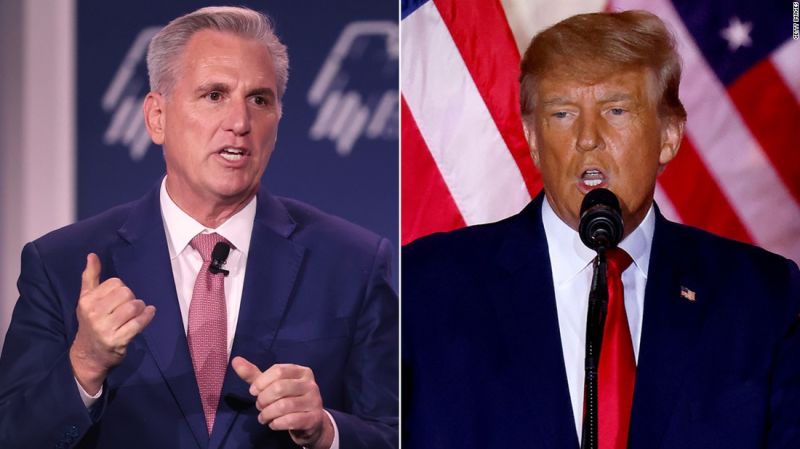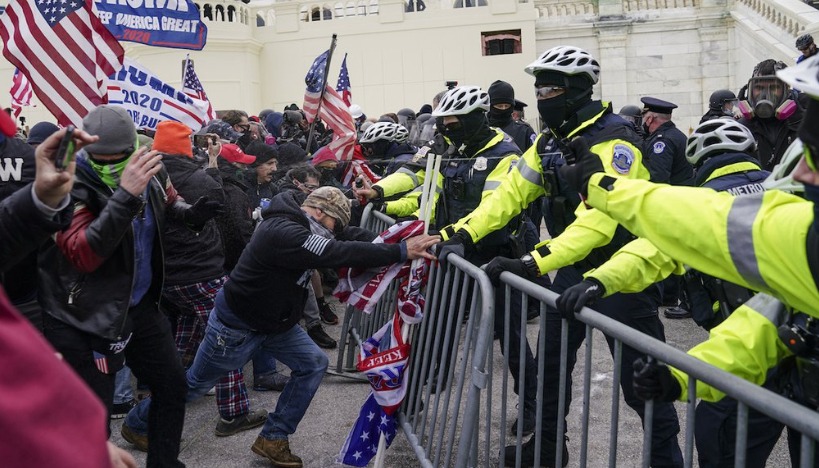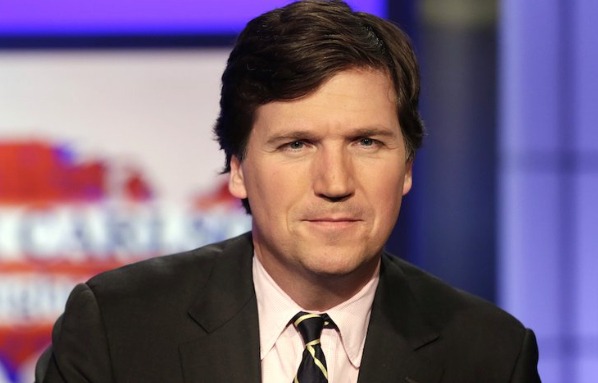House Speaker Kevin McCarthy privately expressed support for expunging former President Donald Trump’s two impeachments during a call with Trump, according to a source. McCarthy did not promise to bring the idea to the floor, but said he would gauge support within the conference. This comes after McCarthy’s recent interview where he praised Trump’s chances in the 2024 election but stopped short of endorsing him, causing backlash from Trump’s allies. McCarthy later apologized to Trump for his comments. However, it is unlikely that a House vote to expunge the impeachments would be successful, as leadership lacks the necessary votes. Additionally, it is unclear if expunging an impeachment is even possible. Efforts to “expunge” the impeachment would not have any procedural consequences and would not undo the previous impeachment votes. Despite this, Trump’s allies, including Rep. Marjorie Taylor Greene, have pushed for a House vote on expungement. GOP Rep. Ken Buck stated that he would vote to expunge the impeachments if McCarthy brought it to the floor, but cautioned against the precedent it would set. Trump himself has expressed support for expunging the impeachments.
McCarthy’s Surprising Support for Expunging Impeachments: What’s Really Happening?
In a surprising turn of events, House Minority Leader Kevin McCarthy has recently expressed his support for expunging impeachments. This unexpected stance has left many political analysts and observers questioning the motives behind McCarthy’s decision. Is this a genuine belief in the need for accountability and closure, or is there a deeper political strategy at play?
To fully understand the significance of McCarthy’s support for expunging impeachments, it is essential to delve into the context surrounding this issue. Expunging impeachments refers to the act of erasing an impeachment from the official record, effectively wiping it clean as if it never occurred. This is an extremely rare and controversial practice, as it undermines the historical record and the principle of accountability for elected officials.
The most recent impeachment trial of former President Donald Trump has undoubtedly played a significant role in shaping McCarthy’s position. Trump was impeached twice by the House of Representatives, first in 2019 and then again in 2021, making him the only president in U.S. history to face impeachment twice. Both impeachments were related to allegations of abuse of power and incitement of insurrection.
McCarthy, a staunch ally of Trump, initially condemned the former president’s role in the January 6th Capitol riot but later backtracked on his criticism. This shift in stance, coupled with his recent support for expunging impeachments, raises questions about McCarthy’s true motivations. Is he genuinely concerned about the precedent set by impeachments, or is he attempting to protect Trump and his own political interests?
One possible explanation for McCarthy’s support for expunging impeachments is his desire to maintain unity within the Republican Party. The party has been deeply divided since the Trump era, with some members distancing themselves from the former president and others remaining loyal. By advocating for the expungement of Trump’s impeachments, McCarthy may be attempting to bridge this divide and solidify his position as a unifying figure within the party.
Another factor that may be influencing McCarthy’s stance is the upcoming midterm elections. As the leader of the House Republicans, McCarthy is undoubtedly aware of the potential political consequences of Trump’s impeachments. By expunging them from the record, he may be hoping to minimize any negative impact on the party’s chances in the upcoming elections, particularly in districts where Trump remains popular.
However, McCarthy’s support for expunging impeachments is not without its critics. Many argue that expunging impeachments sets a dangerous precedent, allowing elected officials to evade accountability for their actions. It undermines the constitutional process of impeachment, which serves as a crucial check on executive power. Critics also argue that expunging impeachments erases an important historical record, denying future generations the ability to learn from past mistakes.
Ultimately, McCarthy’s surprising support for expunging impeachments raises more questions than it answers. While it is clear that his stance aligns with his political interests and the desire for party unity, the true motivations behind his decision remain uncertain. As the debate over expunging impeachments continues, it is crucial for the American public to closely examine the implications of such a move and consider the long-term consequences for accountability and the integrity of the political system.








